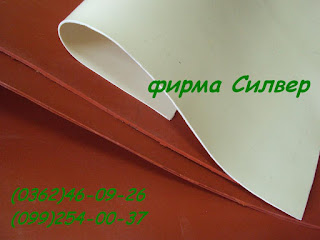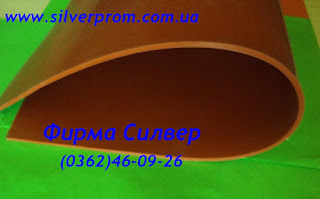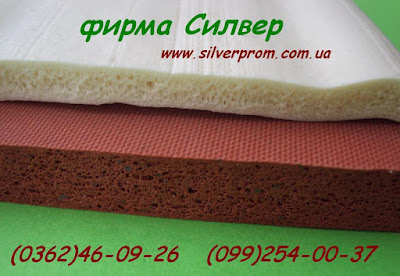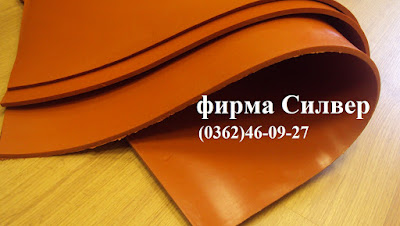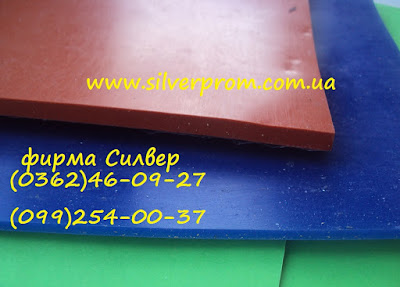Резина. Свойства и Приложения
Резина - эластичный материал, полученный в результате отверждения натурального (NR) и синтетического каучука (CK). Он представляет собой чистый продукт эластомерного сшивания молекул каучука с химическими связями. Свойства определяются как используемый каучук, так и компоненты резиновой смеси (подробности ниже). Резина, как правило, обладает более высокой термостойкостью, чем каучуки. Современная физическая теория объясняет упрочнение каучука, повышая его прочность благодаря наличию связующих сил (адсорбции и адгезии), возникающих между резиной и наполнителем, и образуют непрерывную структуру наполнителя в виде цепочки из-за взаимодействия между частицами наполнителя. Возможно химическое взаимодействие резины с наполнителем.

Rubber is one of the most important structural materials, which is widely used in various sectors of the economy and in everyday life. This is due primarily to its unique ability to significantly deform under relatively small voltages, change shape under mechanical loading, practically maintaining a constant volume, to recover its original shape after removing the load, during deformation to absorb and dissipate the subsequent restoration of mechanical energy.
1. Hard rubber and soft rubber
Products made of hard rubber different from soft rubber products mainly the amount of sulfur (or other agent) used in the vulcanization. When the amount of sulfur in the rubber composition exceeds 5%, the result obtained by vulcanizing the solid rubber. The rubber composition may contain up to 47 parts of sulfur per 100 parts of rubber; this gives a solid and rigid product, called ebonite, as similar to ebony (black) tree.
Articles of hard rubber have good dielectric properties and are used in the electrical industry as insulators, such as distribution panels, plugs and sockets, phones and batteries. Made with hard rubber tubes, valves and fittings are used in all areas of the chemical industry, where corrosion resistance is required. Production of children's toys - is another article of consumption of hard rubber.
Characterized by a rubber hardness indentation resistance in a metal needle or rubber ball (indenter) under the force of a compressed spring or by the action of the load. various hardness testers are used to determine the hardness of the rubber. Often, to determine the hardness of rubber used TM-2 Hardness (Shore type) that has a blunted needle associated with a spring inside the instrument. The hardness is determined by the depth of pressing the needle into the sample by the action of the compressed spring in contact with the device ground plane of the sample surface (GOST 263-75). needle indentation is proportional to the movement arrows on the instrument scale. Maximum hardness corresponding to the hardness of glass or metal, is 100 arbitrary units. Rubber composition according to the degree of cure and has a hardness ranging from 40 to 90 conventional units. With increasing content of filler and an increase in the duration of vulcanization hardness increases; softeners reduce the hardness of the rubber.
Rubber can be regarded as crosslinked colloidal system in which the rubber is a dispersion medium, and fillers - a dispersed phase. The most important property of the rubber -.. High flexibility, ie the capacity for large reversible deformations in a wide range of temperatures .Rezina combines svoysistva solids (elasticity, dimensional stability), liquids (amorphous, high deformability at low volumetric compression) and gas (increasing vulcanizing elastic mesh with increasing temperature, the nature of entropy elasticity).
Rubber - a relatively soft, almost incompressible material. The complex of its properties is determined primarily by the type of rubber; Properties of can vary significantly by combining rubber.
Module type rubber elasticity at low deformations is 1-10 MPa, which is 4-5 orders of magnitude lower than that of steel; Poisson coefficient of rubber is close to 0.5.
Elastic rubber svoystvava nonlinear and have a pronounced relaxation character: independent of the loading conditions, the magnitude, timing, speed (or frequency), repeated deformation and tesperatury. Elongation up to 1000%
Reversible deformation stretching rubber can reach 500-1000% (about 1% for steel).
The compressibility of rubber - rubber for engineering calculations generally considered incompressible.
The lower limit of the temperature range of high elasticity rubber mainly due Tg rubbers and rubbers for crystallizing also depends on the temperature and rate of crystallization.
The upper temperature limit of operation associated with rubber termichicheskoy resistant rubbers and cross chemical bonds formed during vulcanization. Unfilled rubber on the basis of non-crystallizing rubbers have low strength. The use of active fillers (finely blacks, SiO2, etc.) Allows an order to increase the strength characteristics of rubber and rubber to achieve performance levels of crystallizing rubbers.
Rubber hardness is determined by its content of fillers and plasticizers, as well as the degree of vulcanization.
rubber density is calculated as the volume weighted average value of the densities of the individual components. Similarly, it can be approximately calculated (at a volume filling less than 30%) thermal characteristics of rubber: the coefficient of thermal expansion, specific volume heat capacity, heat conductivity coefficient.
Rubber absorbs little water and limited swell in organic solvents.
Known rubber, characterized by oil, gasoline, water, steam and heat resistance, resistance to the action of chemically aggressive environments, ozone, light, ionizing radiation. At long. Tyre storage and use are subject to aging and fatigue, resulting in deterioration of their mechanical properties and fracture strength decrease. The service life of rubber depending on the operating conditions of several days to several tens of years.
wear resistance
It is the main indicator of wear resistance and abrasion resistance to abrasion, which are defined in terms of rolling with slippage (GOST 12251-77), or a sliding surface for abrading generally, as in the previous case, Abrasive GOST 426-77).
Friability (determined as the ratio of volume reduction of the sample when abrasion work expended to abrasion, and is expressed in m3 / MJ [cm3 / (kW (h)].
Abrasion resistance (defined as the ratio of work expended to reduce attrition by abrasion of the sample volume and is expressed in MJ / m3 [cm3 / (kW (h)].
Abrasion ring samples rolling with slippage more consistent with the terms of tire treads wear during operation, and therefore is used for testing the durability of tread rubber.
2. rubbers and elastomers (elastoplast)
1) Natural (NR) and synthetic isoprene (SRS). Density rubbers 910-920kg / m 3, tensile strength 24-34MPa, elongation of 600-800%. According to the elastic properties of SKI-3 mark surpasses most of the currently known UK and almost equivalent to the Tax Code. In addition, release isoprene rubber SKI-food Sn, Sc-SKI-for color products, SKI ZNTP -. For light thin-walled products and other isoprene rubber used in the manufacture of conveyor belts, molded articles, medical sponge and other products.
2) Butadiene (ACS). Density rubber 900-920kg / m 3, tensile strength 13-16MPa, elongation of 500-600%. Known: ACS I and II groups, differing in plasticity and SKDM - oil-filled, with oil content of 16 to 25 parts (by weight), SKDP - containing 9-10% piperylene.. SKD has high frost resistance and resistance to abrasion. Rubber compounds based on SKD poorly processed extrusion and calendering. To improve these properties, added to the SKD NC and SKI-3. Oil-filled ACS has better properties plastoelasticheskimi and vulcanizates based on it - a complex of improved physical and mechanical properties. The mixtures are characterized by low tack SKD. SKD inferior NC on the strength of the vulcanizates.
3) Butyl rubber (BR) is resistant to oxygen, ozone or other chemical agents. Rubber has high abrasion resistance and high dielectric properties. As temperature resistance inferior to other rubbers ,. The basic physical properties of BC is unusually high gas and moisture barrier properties. The chamber of the tire keeps the air of this material is 10 times longer than the camera of the natural rubber. Butyl rubber is widely used as a general and special purpose. In the manufacture of rubber goods manufactured from BC conductivity of steam hoses, conveyor belts and rubber technical details of which require higher heat, steam, ozone and chemical resistance. BC used for the manufacture of insulating rubber, rubberized fabrics, and various chemical equipment lining. Rubbers of BC used the details of milking machines in the food industry.
Crystallizing rubber, which allows to obtain a material with high strength (although low elastic properties).
4) Styrene-butadiene (SCS) and butadienmetilstirolnye (SKMS) rubbers. Density rubber 919-920kg / m 3, tensile strength 19-32MPa, elongation of 500-800%, based on styrene butadiene rubbers and rubbers butadienmetilstirolnyh have high abrasion resistance. Rubbers of these rubbers are widely used in the manufacture of conveyor belts for the coating rubber, various rubber goods. Available special brand of cold-resistant rubber with a low content of styrene or methyl styrene: SKS-Yu, SKMS-10 and SKS-10-1.
5) nitrile (NBR). Rubbers based on SKN have high strength, good resistance to abrasion, but inferior elasticity of rubber on the basis of the Tax Code, surpass them in resistance to aging and the action of dilute acids and alkalis. -The Main oil-resistant nitrile rubber type, widely used in the manufacture of a very large range of industrial rubber goods. Oil resistant nitrile rubber to an extent corresponding to the content of acrylonitrile therein. RTI Industry uses the following types of rubber: SKN-18 and SKN-18M, SKN-26, SKN-26M, SKN-40M, SKN-40T, SKN-18RVDM, SKN-26RVDM. Currently new types of butadiene acrylonitrile rubbers. These include: rubber with a high content of acrylonitrile, soft type, produced with non-toxic emulsifier - SKN-50cm; modified PVC - SKN-18PVH and others.
6) The ethylene-propylene (EPM and EPDM), ethylene-propylene copolymer - is a white rubbery mass, which has high strength and elasticity, is highly resistant to thermal aging, has good dielectric properties. In addition to EPM produce EPDM terpolymers.
Rubbers have a complex of valuable properties (heat, light and ozone resistance), allows their use in the manufacture of rubber, both general and special purpose. Resistant to the action of strong oxidants (HNOz, H2O2, etc.)., Are used for sealing products, diaphragms, hoses, and so flexible. E., Do not collapse when operating at atmospheric conditions for several years. It is used for the production of molded and non-molded products, insulation, sealants for hydraulic systems. This rubber produced from cheap raw materials and finds application in many industries.
Ethylene propylene rubber has a high breathability.
7) Chloroprene (CR) = Naira. Rubber-based Nairit have a high elasticity, vibration resistance, ozone resistance, resistant to fuel and oil action, well resist heat aging. (Rubber oxidation slows down the shielding effect of the chlorine to the double bond.) (Oil -, benzo -, ozone resistance, fire resistance, improved heat resistance), defining the specificity of its application. They do not contain sulfur in the molecular chains are more regular, and crystallized at a higher speed. excellent dynamic properties. Nairit are used in the production of V-belts, molded and non-art, hoses, belts and other rubber goods. successfully Rubber based Nairit used for lining chemical equipment, subjected to the action of alkalis, solutions of salts and other aggressive media. Industry produces liquid and Nairit - which are used for anti-corrosion and protective coatings.
Chloroprene rubbers produced can be divided into two main groups: the modified sulfur and modified mercaptans. The first group includes Nairit CP-50, CP-Nairit 100 Naira KR-50, which contain sulfur in the molecular chain are less regular and have a relatively low rate of crystallization. The second group includes Nairit P Naira NP Naira PNA Naira NOT. The production of new grades of Nairit - DF, DKR, DN et al.
8) chlorosulfonation polyethylene (HSPE) have increased abrasion resistance when heated, ozone, oil and petrol-resistant, good dielectric. Used as a structural material and a protective (anti-corrosion, not overgrowing in seawater algae and microorganisms coating), to protect against the effects of radiation. Its vulcanizates have excellent ozone resistance, high wear resistance and weather resistance, low water absorption, good insulating performance, excellent chemical resistance. HSPE used for covering conveyor belts that transport the heated material. It is recommended to use it in the manufacture of hoses, belts, heat resistant seals, gaskets, sponge products, special types of rubberized fabrics.
The disadvantages include a relatively high heat generation, considerable residual deformation and gas release when heated.
9) Urethane (SCU) / Polyurethane has high strength, elasticity, abrasion resistance, maslobenzostoykostyo. Resistant to oxygen and ozone, its gas barrier 10 - 20 times higher than TC. Urethane rubber resistant to radiation. DCCH based rubber is used for tires, conveyor belts, pipes and gutter plates for transporting abrasive materials, footwear and others.
Polyester generate SKU-7, 8-UWC, UWC-50; based on polyether - SKU-PF SKU-PFL.
10) polysulfide (CPM) Thiokol. Resistant to fuel and oil to oxygen, ozone, sunlight. It has high gas tightness - good sealing material, good aging characteristics, high tear resistance. Aqueous dispersions thiokols used to seal concrete tanks.
The mechanical properties of rubber-based thiokol low.
11) acrylate (AA) / polyacrylate. Acrylate rubbers advantage is resistance to sulfur-containing oils at high temperatures; they are widely used in the automotive industry. They are resistant to the action of oxygen, heat resistance sufficiently exhibit adhesion to plastics and metals. The distinctive properties of acrylic rubber - it is their high heat and oil resistance. In the heat resistance, they are second only siloxane and fluorinated rubbers. A common feature DCCH is extremely high abrasion resistance. According to this indicator, they are far superior, not only all types of rubbers of general and special purpose, and many metals. Along with this, the DCCH have good elasticity.
It is recommended to apply the acrylic rubbers for various heat- and oil-resistant sealing products (eg, seals, rings, gaskets), hoses, diaphragms, coatings, gumming equipment, adhesive tapes; for the manufacture of products working in conditions of abrasion: various molded articles, printing rolls, plates and chutes pipelines that transport abrasives, and so forth..
The disadvantages are low frost resistance, low resistance to hot water and steam.
SKU-based ethers known under the brand names SKU-PF SKU-PFL; ester-based - SCU-8 SKU-7, a SSI-8P, SKU-7L, SKU-7P.
12) Фторуглеродный каучук (СКФ). Резина устойчива к тепловому старению, воздействию масел, топлива и различных растворителей (даже при повышенных температурах), негорючи, устойчива к действию сильных окислителей (HNOz, H2O2 и т. Д.), Используется для герметизации изделий, диафрагм, гибких шлангов и скоро. Не разрушается при эксплуатации в атмосферных условиях в течение нескольких лет.
Вулканизированная резина обладает высокой износостойкостью. Теплостойкость долгая. Каучуки из фторсодержащих эластомеров широко используются в автомобильной и авиационной промышленности. Из фторопренов изготовлены уплотнительные и уплотнительные детали, рассчитанные на работу в масле и топливе при 200 ° С и выше.



